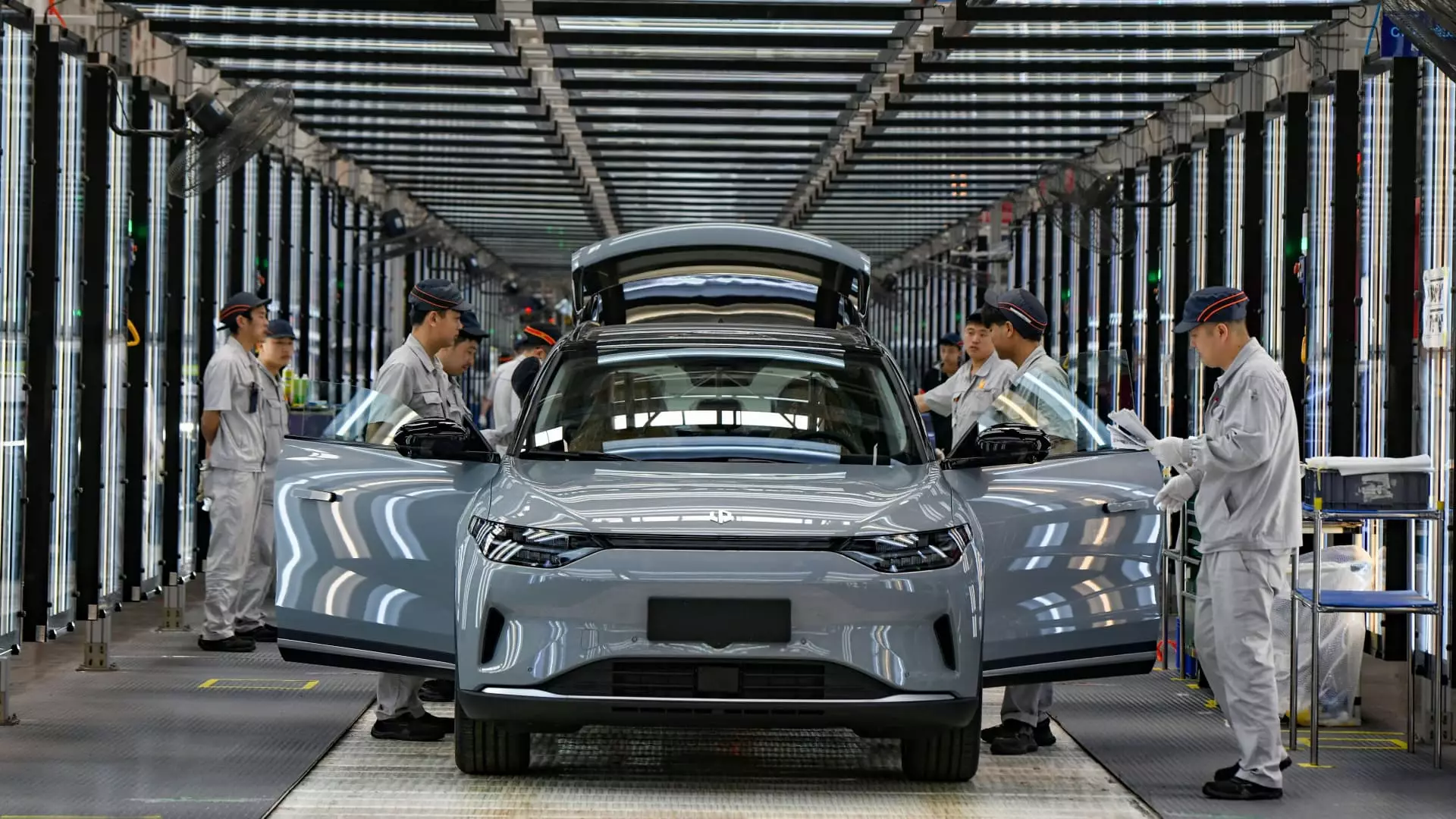On a tumultuous Monday, the global automotive sector experienced a significant downturn as U.S. President Donald Trump enacted tariffs that he had previously alluded to. These tariffs target goods imported from Canada, Mexico, and China, with the intent to address pressing issues that Trump’s administration attributes to illegal immigration and narcotics trafficking. This unexpected economic intervention has sent shudders through the automotive markets, raising several questions about the implications for automakers and the industry at large.
The newly signed executive orders impose a substantial 25% tariff on most Canadian and Mexican imports, alongside a 10% tax on energy products from Canada and on various Chinese goods. The tariffs are poised to commence soon, indicating that the ramifications will quickly take effect. Trump has warned U.S. citizens to brace for “some pain,” underlining the urgency of the situation according to his administration’s narrative. This approach creates a vivid contrast between national economic strategy and potential consumer impact—a dichotomy that could lead to widespread repercussions across various sectors.
The immediate reaction of the stock market underscores the alarm within the automotive industry. Major players such as General Motors and Ford reported declines of 6.6% and over 4% respectively, which reflects investors’ fears about a brewing trade war. European automakers did not escape unscathed either; companies like Valeo and Stellantis saw their shares tumble by 7.8% and 6%. The global interconnectedness of the automotive industry means that negative sentiment in one region can quickly ripple across international markets, as evidenced by declines in stock for Japanese companies such as Toyota and Nissan, which faced losses exceeding 5%.
Analysts predict that these tariffs could drastically reshape the automotive landscape, particularly in North America where automakers are heavily reliant on Canadian and Mexican manufacturing. The North American supply chain is intricate, with many parts fabricated in one country before being assembled in another, highlighting vulnerabilities that tariffs could expose. The threat from the U.S. administration hangs over the industry’s future, emphasizing the precarious nature of trade relations—a factor that may soon force companies to reevaluate their operational strategies in order to mitigate financial repercussions.
Responses from Affected Nations
The response from Canada and Mexico has been swift and unequivocal. Both nations have threatened to escalate the situation by imposing their own tariffs in retaliation. This tit-for-tat scenario is reminiscent of the trade disputes that escalated in recent years, where retaliatory measures lead to a wider trade war, ultimately affecting consumers and businesses alike. The prudent approach would be for all parties to engage in constructive dialogue to de-escalate tensions and seek mutually beneficial arrangements.
Potential EU Involvement and Broader Implications
Trump’s tariffs on Mexico, Canada, and China raise concerns that the European Union may soon be subjected to similar treatment. Assurances from the EU have indicated a readiness to respond proportionately, which could further complicate the landscape for global automotive trade. Tariffs on European vehicles entering the U.S. would disproportionately raise prices for consumers while stymying the inflow of European automotive exports at a critical juncture.
The backdrop of these ongoing conflicts presents a considerable challenge for German automotive giants like Volkswagen and BMW, already facing sluggish demand and increased pressure on profit margins due to economic uncertainty, particularly in China. Volkswagen’s proactive stance in assessing the potential fallout of U.S. tariffs reflects a broader concern regarding supply chain stability and economic equilibrium. The automotive industry thrives on open markets supported by free trade, as echoed by various industry leaders who fear that tariffs could hinder growth and innovative potential.
The unfolding situation underscores the precarious nature of global trade relations, particularly in an industry as interconnected as automotive manufacturing. The implications of the tariffs announced by Trump could serve as a catalyst for significant changes, prompting manufacturers to rethink their operational frameworks and possibly leading to higher consumer prices. Ultimately, the hope is for constructive negotiations and dialogue among trade partners to avert a detrimental trade conflict while fostering a stable economic landscape conducive to growth and innovation.


Leave a Reply